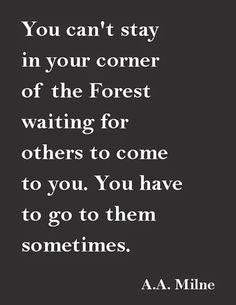
The Trinity of the Aspiring Writer
October 15, 2013
Three quick ways to avoid not letting your





Three quick ways to avoid not letting your
job outshine your passion
Sometimes
we worry that by taking on a job outside of writing, we will lose the
motivation or time to work on what we are passionate about. I’m not going to
lie, this is often the case, but it doesn’t have to be such a black and white
scenario. Obviously energy has to be put into the things we are making the bulk
of our money in, but below are some tips for reminding yourself to not let your
“bread-winning job” overshadow your passion for writing. These three points interact with each other and contribute to a successful life as a writer who works on the side.
we worry that by taking on a job outside of writing, we will lose the
motivation or time to work on what we are passionate about. I’m not going to
lie, this is often the case, but it doesn’t have to be such a black and white
scenario. Obviously energy has to be put into the things we are making the bulk
of our money in, but below are some tips for reminding yourself to not let your
“bread-winning job” overshadow your passion for writing. These three points interact with each other and contribute to a successful life as a writer who works on the side.
1. Schedule time for your passion — I know this sounds silly, but I know
for me, having a schedule sometimes makes me feel more accountable. I almost
feel obligated to follow a schedule if it’s written down even if I feel like it
would be easier to just chill and do nothing. Schedule an hour or two in every
day (or if that’s not doable, maybe every other day and more concentrated time
blocks on the weekends). It’s important, however, that when you are scheduling
time you don’t let yourself succumb to the notion that one should only schedule chores.
You’re scheduling time to do what you love so try and maintain that mentality.
for me, having a schedule sometimes makes me feel more accountable. I almost
feel obligated to follow a schedule if it’s written down even if I feel like it
would be easier to just chill and do nothing. Schedule an hour or two in every
day (or if that’s not doable, maybe every other day and more concentrated time
blocks on the weekends). It’s important, however, that when you are scheduling
time you don’t let yourself succumb to the notion that one should only schedule chores.
You’re scheduling time to do what you love so try and maintain that mentality.
2.
Don’t write at work! — It’s so
easy to take an hour lunch break, go down to a cafe, and say, “Hey! I’m gonna
use this time to finish that chapter I’ve been working on!” WRONG! Don’t do
this. It’s sort of like the concept of eating or working in bed. They say to
not do anything in your bedroom other than sleep. As a species, we’re not that
smart and in many ways our minds are primitive. We will draw associations
between otherwise unrelated things. In the case of eating or working in bed,
the brain becomes conditioned to expect stimulation when you go to bed and it
therefore becomes harder to sleep. The same principle applies to writing at work.
The routine and attitudes you have towards work might start being reflected in
your feelings about writing (which is not always a bad thing necessarily, but
in my opinion it is still better to keep the two activities independent and
mutually exclusive).
Don’t write at work! — It’s so
easy to take an hour lunch break, go down to a cafe, and say, “Hey! I’m gonna
use this time to finish that chapter I’ve been working on!” WRONG! Don’t do
this. It’s sort of like the concept of eating or working in bed. They say to
not do anything in your bedroom other than sleep. As a species, we’re not that
smart and in many ways our minds are primitive. We will draw associations
between otherwise unrelated things. In the case of eating or working in bed,
the brain becomes conditioned to expect stimulation when you go to bed and it
therefore becomes harder to sleep. The same principle applies to writing at work.
The routine and attitudes you have towards work might start being reflected in
your feelings about writing (which is not always a bad thing necessarily, but
in my opinion it is still better to keep the two activities independent and
mutually exclusive).
3.
Don’t bring your work home — This is similar
to my second point. Make sure you are making every effort to keep work and
life separate. We know (mostly from hilarious Hollywood depictions) that this
isn’t always an easy task, however you have to try and remember that your passion
for writing is likely more in tune with your emotions than your work. So if you
bring your feelings about work home consistently (sometimes with actual work),
your home and your spare time begin to feel less like they’re your own. It is that feeling
of having your own “safe writing space” that allows you to get the most out of
the reduced writing time you will inevitably experience when you have a job on
the side.
Don’t bring your work home — This is similar
to my second point. Make sure you are making every effort to keep work and
life separate. We know (mostly from hilarious Hollywood depictions) that this
isn’t always an easy task, however you have to try and remember that your passion
for writing is likely more in tune with your emotions than your work. So if you
bring your feelings about work home consistently (sometimes with actual work),
your home and your spare time begin to feel less like they’re your own. It is that feeling
of having your own “safe writing space” that allows you to get the most out of
the reduced writing time you will inevitably experience when you have a job on
the side.
The bottom line of
these three tips is that you have to go out of your way to make time for your
writing, and beyond that, you have to let it be its own entity. It has to be separate enough from your day
job. If you’re lucky (as we discussed last week), you might get a day job that
actually has the potential to inspire you in your writing, and this is good. It’s
when the job becomes a predominant presence that inevitably darkens the writing
experience for you that you can truly get into trouble.
these three tips is that you have to go out of your way to make time for your
writing, and beyond that, you have to let it be its own entity. It has to be separate enough from your day
job. If you’re lucky (as we discussed last week), you might get a day job that
actually has the potential to inspire you in your writing, and this is good. It’s
when the job becomes a predominant presence that inevitably darkens the writing
experience for you that you can truly get into trouble.
Previous
Inspire Yourself and Do Better

Newer
Get Up Offa That Thang!
You May Also Like

Checklist to Self-Publishing Success!
April 16, 2013
Why Should You Publish on Writing Sites and New Ones You Can Try.
August 17, 2011


